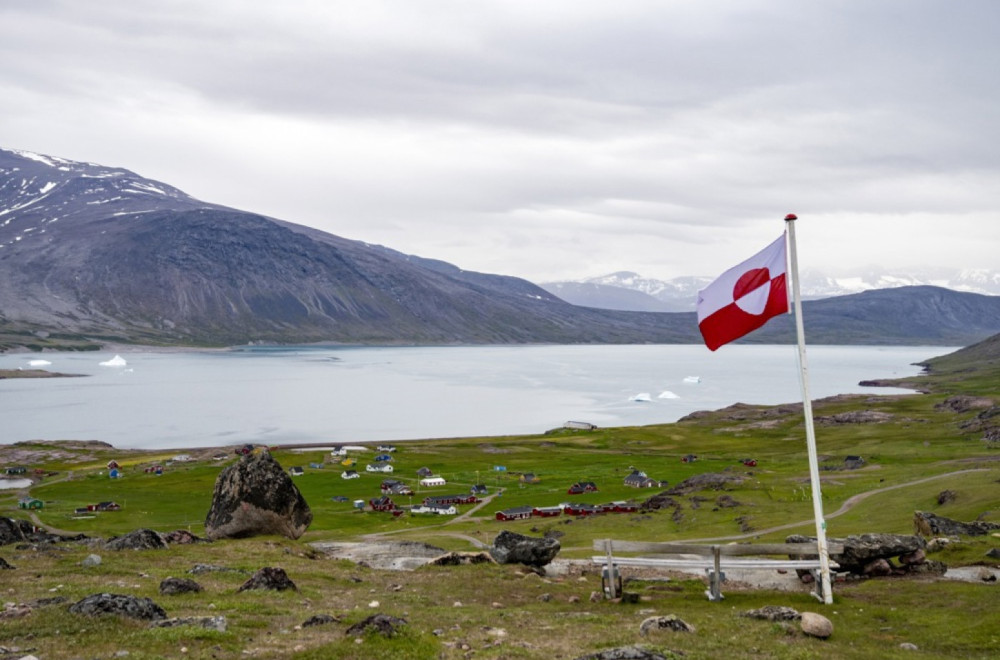11.03.2025.
9:09
Will Trump "conquer" Greenland? Today is D-Day
About 40,000 inhabitants of Greenland with the right to vote are going to the elections for the new convocation of the parliament, which could be among the most significant in the history of this arctic island.

The elections are taking place in light of repeated announcements by US President Donald Trump that he will take over that autonomous Danish territory and the interests of major powers in its mineral wealth, as well as the islanders' aspirations for independence.
Voters on Greenland, the world's largest island that is part of Denmark but enjoys wide autonomy, will elect 31 members of Inatsisartut, also known as the Parliament of Greenland, as they do every four years.
This time, however, the stakes are of existential importance - at stake is nothing less than Greenland's place in the world, including the question of whether it should remain part of Denmark, strive for independence or become closer to great powers such as the US and Europe, writes Politico today.
The elections in Greenland, in the focus of global attention, could mark the starting point of further geopolitical upheavals in the northern hemisphere - firstly, because advocates of independence hope that the outcome of the vote could result in a strong mandate for full separation from Denmark, and secondly - and probably more importantly, because Trump has announced that he will make Greenland a US territory since he was elected in November, according to Deutsche Welle.

"The Guardian" estimates that the outcome will be unpredictable because Greenlanders are divided - voices for independence are getting stronger, but some want to cooperate with Washington.
In terms of the distribution of forces in the parliament, the party with the largest number of seats is currently the Inuit Ataqatigiit (Community of Peoples), together with its coalition partner Siumuti (Forward). Both parties are pro-independence and have promised to call a referendum on the island's separation from Denmark, without specifying when such a vote might take place.
Under an agreement reached with Denmark in 2009, Greenland can legally declare independence, but only after holding a referendum, and while support for full sovereignty on the island is widespread, some question what that would actually mean for the territory's defense and economy.
"Politicians are not entirely clear when it comes to the question of what independence really means - whether it is economic independence, a sense of independence or having one's own borders," says Masaana Egede, editor-in-chief of the Greenlandic daily "Sermitsiaqa".
According to Egede, who is the half-brother of Prime Minister Múte Egede, Greenlanders want independence, but they all have different definitions of independence.
He explains that there are 32 areas where Denmark still makes decisions in favor of Greenland.
Independence, Politico points out, would also mean a big gap in the island's budget - without the $500 million in annual subsidies provided by Denmark, which pays for Greenland's Scandinavian-style insurance system.
By the way, the shortest distance between the USA and today's Russia is across the territory of this island, so that in the 1950s, Denmark, as a member of NATO, allowed the USA to establish the Thule Air Base in the northwest of Greenland - today it is called Pituffik Space Base and is used for electronic reconnaissance and early detection of possible Soviet missiles aimed at the United States.
Why does Trump want Greenland?
Greenland also became interesting because of its mineral wealth. Above all, in the south, it is assumed that there is oil and natural gas, but also metals such as gold, uranium or zinc.
Covering more than two million square kilometers, Greenland's territory abounds in untouched natural resources, including coveted rare earth minerals, and has a population of less than 60,000.
This makes Greenland vulnerable to security threats - and not only from Donald Trump, who called the acquisition of the island "an absolute necessity", did not rule out the use of military force or economic coercion to this end, and last week declared that the US would get the island "one way or another".
At the same time, Trump cited threats from China and Russia, both of which are increasingly "casting their eyes" on the Arctic.

Amid heightened interest from those major powers in the island's fate, Greenland tightened foreign interference laws last month, banning foreign and anonymous political donations.
Greenlandic MPs also oppose EU-funded mining projects - although the island is not a member of the bloc - because deposits of rare earth minerals are part of its uranium resources.
However, uranium mining was not a major issue during this election campaign, nor were the issues of boosting tourism or shipping, even though it could also help finance Greenland's independence.
"The issue of independence dominated. It replaced the debate on Greenland's economy, which usually occupies a prominent place in pre-election activities," Egede said.
Although Trump promised to make the Arctic island "rich" in a presidential address last Tuesday, the vast majority of Greenlanders - about 85 percent of them - oppose the idea of becoming part of the US, according to a January poll.
Whatever the Greenlanders decide tomorrow, the outcome of the election will certainly be reflected far beyond the icy shores of that island, concludes Politico.





















































Komentari 0
Pogledaj komentare Pošalji komentar